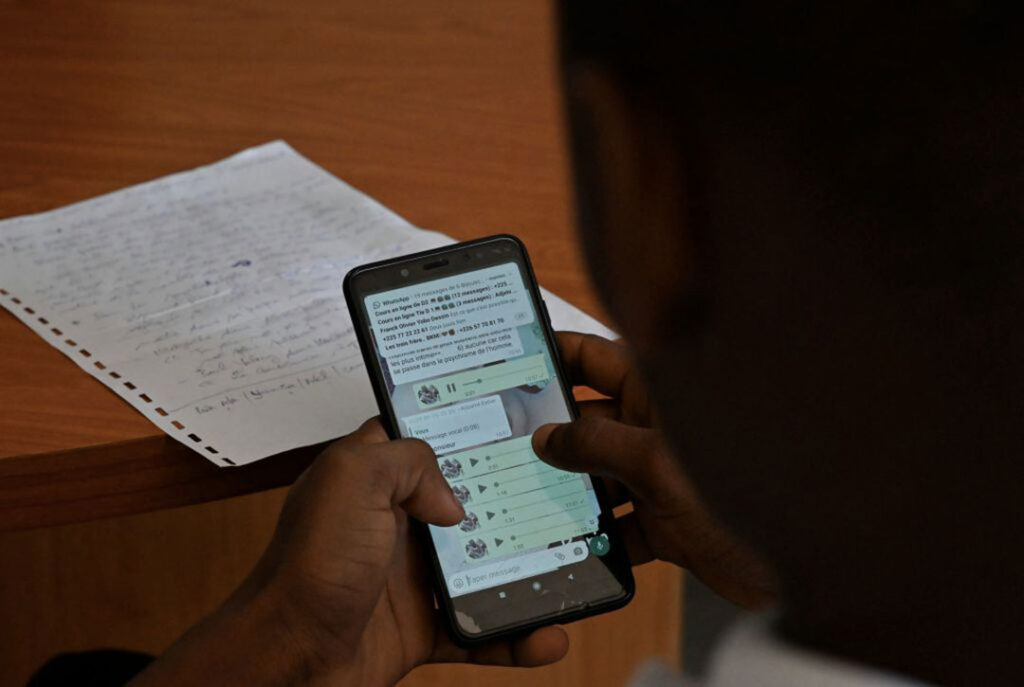ADF STAFF
The messages come through WhatsApp from numbers in Ghana or Nigeria and carry dire warnings about Western vaccines or the international groups promoting them. The messages often get shared quickly, with falsehoods spreading from person to person almost as quickly as the COVID-19 virus itself.
Across West Africa, public health leaders fight a daily battle against misinformation as they try to slow the spread of COVID-19 by vaccinating as many people as possible.
It’s a battle that public health officials say they need to win. Across the region, vaccination rates remain low, with most countries reporting less than 1% of their populations fully vaccinated.
Misinformation is drowning out official public health advice on COVID-19, according to a group of researchers affiliated with Ghana’s University of Cape Coast and Australia’s University of Technology. They co-authored a study, published in Frontiers in Communication, that looks at misinformation’s effects on the spread of COVID-19.
“The worrying aspect is that the current socio-political climate in Africa has engineered the spread of the COVID-19 related misinformation through propagation of unsubstantiated news,” they wrote.
Russian and Chinese disinformation campaigns drive that misinformation, filtering it through West African sources to promote their own vaccines over others. Disinformation is a falsehood spread on purpose, often by a state actor, while misinformation is typically spread without intent to deceive.
The disinformation campaigns aim to discredit Pfizer, Moderna, Johnson & Johnson and AstraZeneca by playing up problems, often omitting key context, and playing down the problems associated with Russian and Chinese vaccines.
Russia’s Internet Research Agency has used Caliwax, a company working in Nigeria and Ghana, to spread disinformation promoting Russia’s Sputnik V vaccine while disparaging others. Caliwax has been identified as a troll farm that previously was used to meddle in U.S. and Guinean elections and French counterterror operations in Mali.
As they drive vaccine mistrust in West Africa, Russia and China are building on previous efforts to undermine public health campaigns. Anti-vaccine conspiracies have long cast suspicion on the World Health Organization, UNICEF, and the Bill and Melinda Gates Foundation as corrupt and untrustworthy.
That mistrust lies at the heart of vaccine hesitancy in the region, according to survey group AfroBarometer. A survey in March of five West African countries found that 60% of respondents were unlikely to get vaccinated. Less than a third said they trusted their government to ensure a COVID-19 vaccine was safe before offering it to their citizens.
“Vaccine hesitancy/resistance skyrockets alongside doubts about the government’s ability to ensure that vaccines are safe,” AfroBarometer reported. “Those who fully trust their government on this score are five to 10 times as likely to want the vaccine as those who don’t trust it.”
For their part, West African nations such as Benin, Nigeria and Sierra Leone are using WhatsApp and other digital systems to counter Russian and Chinese disinformation campaigns by pushing accurate information to their citizens about case numbers, the severity of the illness and how to identify COVID-19 symptoms.
Tregong, a Nigeria-based public relations agency, is on the front line of the fight against misinformation in West and Central Africa.
“Moscow does this for its own interest,” Executive Director Okon Nya told The Daily Beast. “Russia is not only looking to undermine the West but is seeking ways to convince Africa that it offers better medical science than other nations.”

